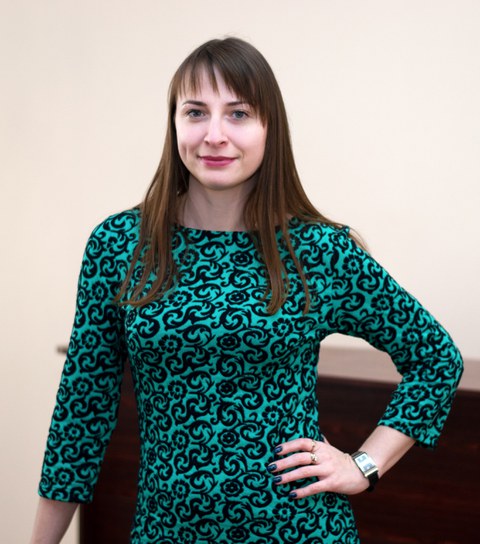27.04.2023
Dr. Svitlana Nyzhnikova: Neue Maria-Reiche-Fellow an der Professur für soziologischen Kulturenvergleich und qualitative Sozialforschung

Foto von Dr. Svitlana Nyzhnikova
Bereits seit 2017 arbeitet Svitlana Nyzhnikov als Dozentin am Institut für Geschichte an der Karazin Kharkiv National University in der Ukraine und erhielt dort 2018 ihren PhD. Nun tritt sie im Rahmen der Maria Reiche Welcome Grants ihr Fellowship an der Professur für soziologischen Kulturenvergleich und qualitative Sozialforschung der TU Dresden an, wo sie Professurinhaberin Heike Greschke bis Mai 2024 unterstützt und an den Korrelationen zwischen der ukrainischen und der russischen Sprache sowie der Identität ukrainischer Einwohner:innen forscht. Mit der Sondermaßnahme der Maria Reiche Welcome Grants bietet die TU Dresden gefährdeten und geflüchteten Nachwuchswissenschaftlerinnen aus der Ukraine schnelle und flexible Hilfe, indem sie Forschungsaufenthalte von Postdoktorandinnen unterstützt.
Im Steckbrief gibt Svitlana Nyzhnikov nähere Einblicke in ihre aktuelle Forschung und benennt ihre Lieblingszitate und -bücher:
Name: Svitlana Nyzhnikova
Position/Professur: Professur für soziologischen Kulturenvergleich und qualitative Sozialforschung
Institut: Institut für Soziologie
Fakultät: Philosophische Fakultät
What are your main interests as a researcher? Which topics do you focus on?
Gender study, forced migration, sociolinguistics.
What was your most interesting research topic so far?
The project «Untold Stories of Ukrainian War Refugees in Germany»
What does your current research focus on?
February 24, 2022, changed everything for millions of people in Ukraine. History and false statements about the role of Russian language in Ukraine played a central role in President Putin’s attempts to produce ideological justification for the all-out invasion of Ukraine in February 2022. During the hostilities, the north, central and south-eastern regions of Ukraine suffered the most, where Russian dominated as the language of communication. My current research focuses on investigating the correlation of Ukrainian/Russian languages and the identity of the inhabitants of Ukraine after February 24, 2022, especially the attitude of the Russian-speaking inhabitants of Ukraine to the Russian and Ukrainian languages before and after the start of the full-scale invasion of the Russian Federation into Ukraine; connection between the Russian language and Ukrainian national identity before and during the war; the changing attitude of Ukrainian society to Russian culture.
Which item do you absolutely need at your workplace?
Photo of my daughter, coffee and cookies
Do you have a favourite quote? If so, what is it and from whom?
“There are no shortcuts to any place worth going”. (Helen Keller)
“All we have to decide is what to do with the time that is given to us” from Lord of the Rings: The Fellowship of the Ring
Which book did you recently read? / Which movie/series did you watch recently?
Book “Invisible Women: Data Bias in a World Designed for Men” by Caroline Criado Pérez
Movie “The Swimmers” (2022), directed by Sally El Hosaini.
More information about you can be found:
(e.g. homepage, blog, Twitter, Facebook – anything you’d like your colleagues / students to know about)
